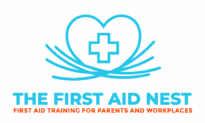First Aid For Anxiety and Chest Pain
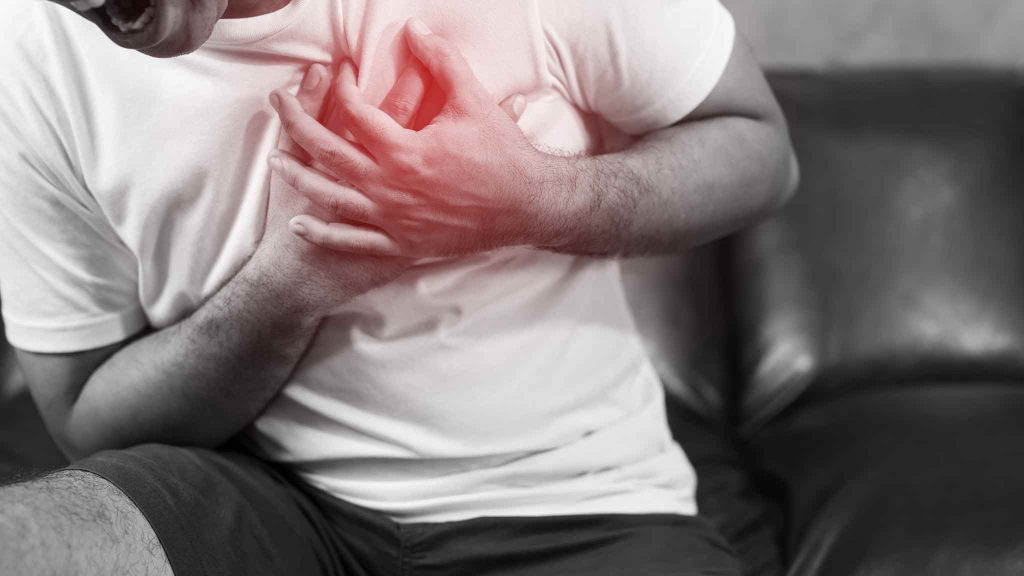
Anxiety along with chest pain can feel extremely distressing. People suffering from anxiety may experience chest pain, tightness and pressure, which can be frightening and debilitating. It’s important to understand the physical and psychological symptoms of anxiety, as well as the potential treatments.
This article will explain the realities of anxiety and chest pain, what to do if you find yourself in distress, and some simple steps for first aid that can help you manage your symptoms. We’ll also look at lifestyle changes and other methods that may help with long-term relief. Read on for more information about managing anxiety and chest pain.
Chest pain and anxiety
When you experience anxiety, you may also have physical symptoms. One common symptom is chest pain. This can be scary, but it’s important to remember that chest pain from anxiety is not harmful. It’s usually just a feeling of tightness or pressure in your chest.
It is important to note that any chest pain should immediately be assessed by a medical professional, whether you think it is anxiety or not.
If you’re experiencing chest pain and anxiety, the first thing you should do is try to relax. Take some deep breaths and remind yourself that the pain is not harmful. If the pain is severe or doesn’t go away after a few minutes, you can also take an over-the-counter pain reliever like ibuprofen.
If your chest pain and anxiety make breathing hard, sit up straight and place your hands on your stomach. Breathe in slowly through your nose, filling up your stomach with air. Then exhale slowly through your mouth. Repeat this until you start to feel better.
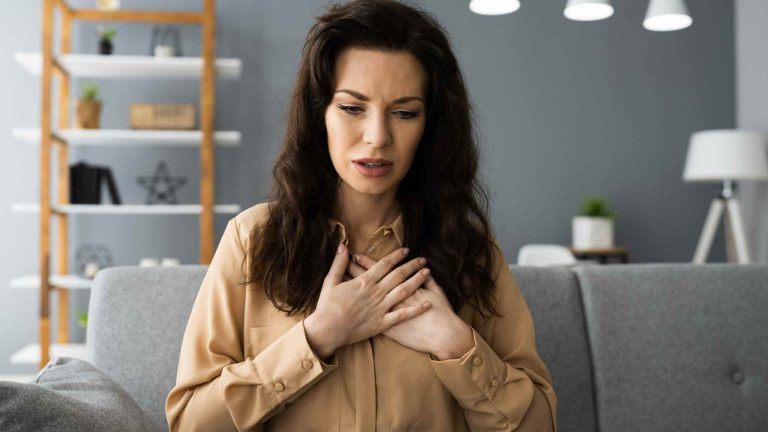
If you have a panic attack, it can be helpful to talk to someone who can calm you down and help you focus on something else besides your symptoms.
Sometimes just talking about what’s going on can help lessen the intensity of a panic attack. If you don’t have anyone to talk to, try calling a hotline or listening to calming audio like meditation or relaxation music or a book until the attack passes.
What is anxiety?
Anxiety is a feeling of worry, nervousness, or unease. It can be mild or severe. People with anxiety may feel like they are constantly on edge. They may have trouble sleeping and focus on their thoughts. Chest pain is a common symptom of anxiety. It can feel like a heart attack, but it is usually not life-threatening.
However, as we said previously, any symptoms of chest pain should be checked by a doctor immediately to rule out other causes.

What are the symptoms of anxiety?
Anxiety is a common mental health condition that can cause a range of symptoms, including chest pain.
Chest pain caused by anxiety is often described as a tightness, pressure, or burning sensation in the chest. It may also feel like your heart is racing or pounding. Anxiety-related chest pain is usually not due to a heart problem but to muscle tension or hyperventilation (breathing too fast).
If you experience chest pain along with other anxiety symptoms, such as a racing heart, shortness of breath, sweating, or dizziness, it’s important to seek medical help.
Chest pain can be a symptom of other serious conditions, such as heart attack or pulmonary embolism, so it’s important to rule out these possibilities before attributing the pain to anxiety.
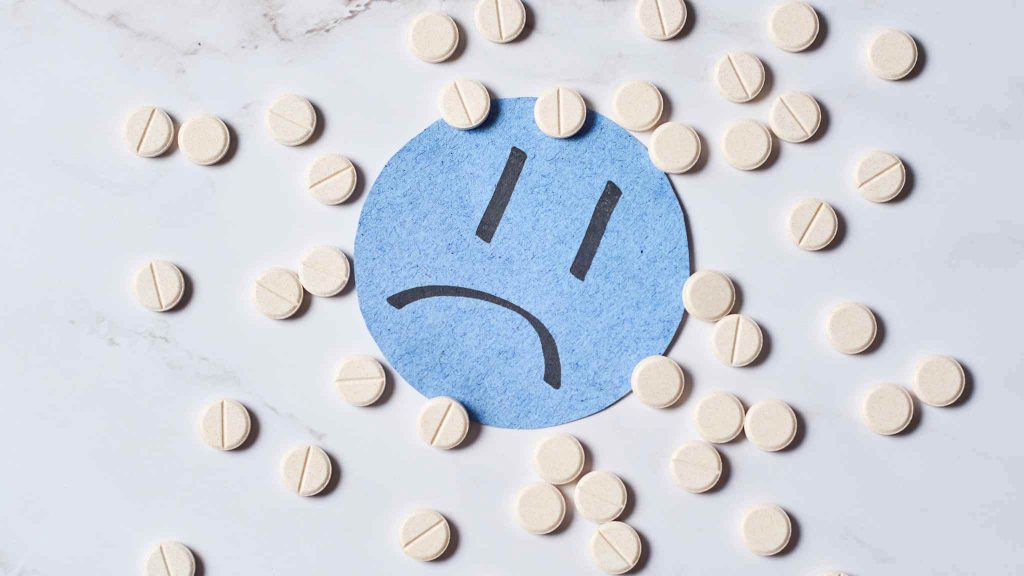
How to Stop Anxiety Chest Pain
If you are experiencing anxiety and chest pain, the first thing you should do is try to relax. Sit or lie down in a comfortable position and take slow, deep breaths. Inhale through your nose and exhale through your mouth. You may also want to close your eyes and focus on a peaceful image or memory.
If your chest pain is severe, persists for more than a few minutes, or is accompanied by shortness of breath, nausea, or lightheadedness, you should seek medical attention immediately. However, for most people with anxiety and chest pain, these simple self-care measures will provide relief.
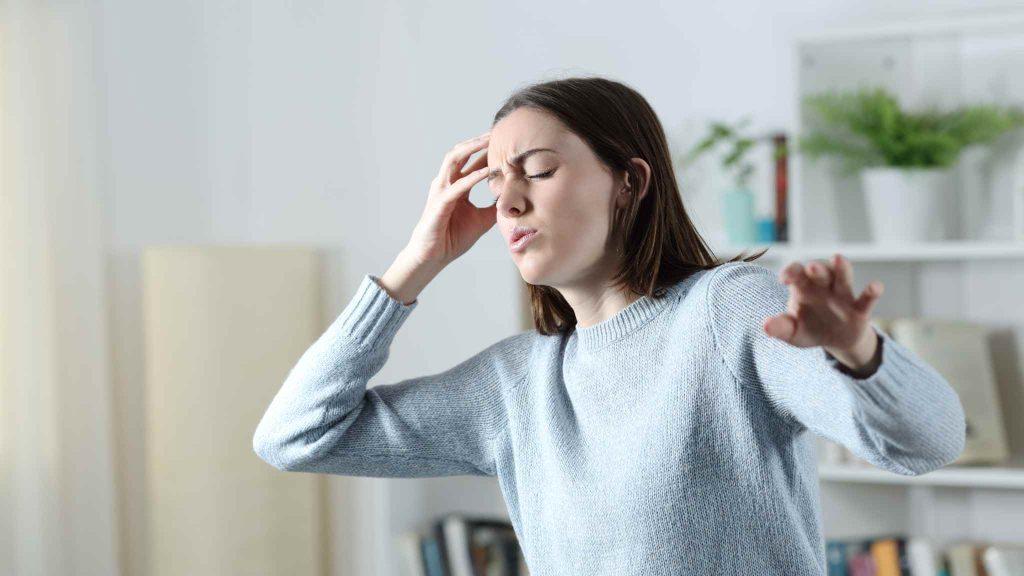
First aid for anxiety and chest pain
Anxiety and chest pain are two very common symptoms that can be experienced together. While anxiety can cause chest pain, it is important to rule out any other potential causes of chest pain before assuming that it is caused by anxiety. If you are experiencing both anxiety and chest pain, there are a few things that you can do to help ease your symptoms:
- Take slow, deep breaths in through your nose and out through your mouth. This will help to slow down your heart rate and ease your chest pain.
- Using techniques like ‘present moment focus’. This is where you focus on something completely different like counting ceiling tiles, counting your steps, basically trying to redirect your thoughts.
- Practice relaxation techniques such as progressive muscle relaxation or visualization. These techniques can help to calm your mind and body, which will in turn help to reduce your anxiety and chest pain.
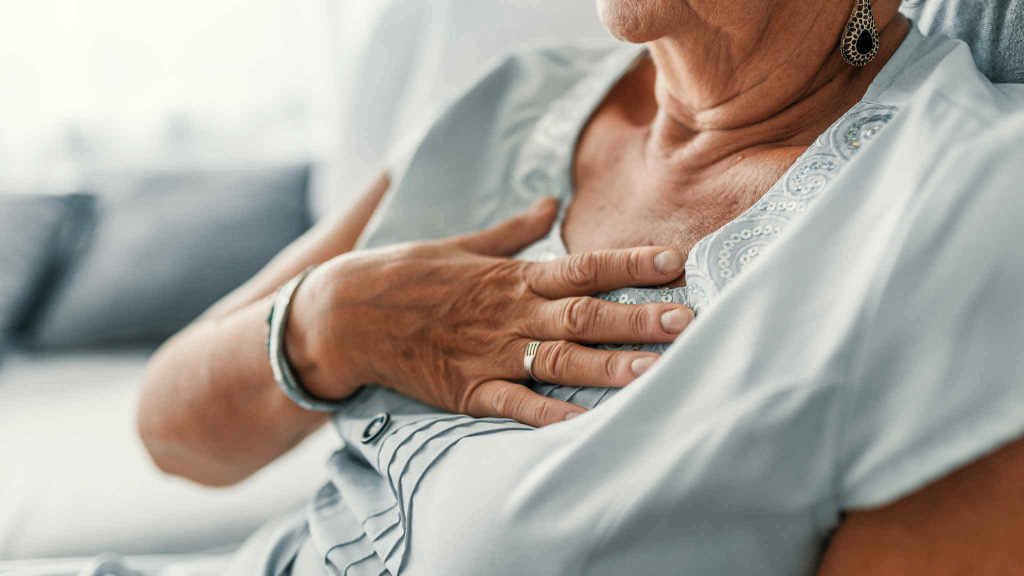
How long should anxiety chest pain last?
Anxiety and chest pain can last for a few minutes to a few hours. If the anxiety is severe, it can even last for days. The most important thing to do when you have anxiety chest pain is to seek medical help.
How do I know if my chest pain is just anxiety?
If you’re experiencing chest pain and anxiety, it can be difficult to know what’s causing your symptoms. However, there are some key differences between anxiety-related chest pain and other types of chest pain.
Anxiety-related chest pain is often described as a feeling of tightness, heaviness, or pressure in the chest. It may also feel like your heart is racing or pounding. This type of chest pain is usually short-lived and goes away when the anxiety does.
Other types of chest pain, such as that caused by heart disease, can be more constant and severe. Heart disease-related chest pain may also radiate to your jaw or arm. If you’re unsure which type of chest pain you’re experiencing, it’s important to see a doctor to rule out any serious medical conditions.
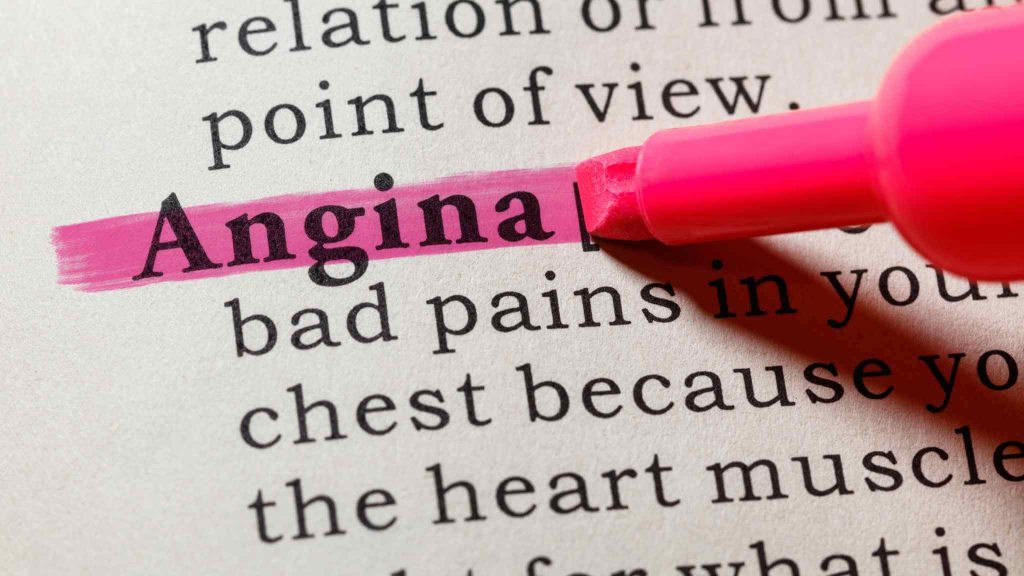
Do I have angina or anxiety?
If you experience chest pain, it can be difficult to determine whether the cause is anxiety or angina. Both conditions can produce very similar symptoms, including chest tightness, shortness of breath, and pain that radiates to the shoulders, neck, or jaw.
However, there are some key differences between the two conditions. Angina is usually caused by coronary heart disease, while anxiety is a mental health condition.
Angina typically occurs during periods of physical activity or emotional stress, while anxiety can occur at any time.
Angina pain often subsides with rest or nitroglycerin medication, while anxiety-related chest pain may not respond to these treatments. If you are unsure whether your chest pain is caused by anxiety or angina, it is important to seek medical attention so that a proper diagnosis can be made.
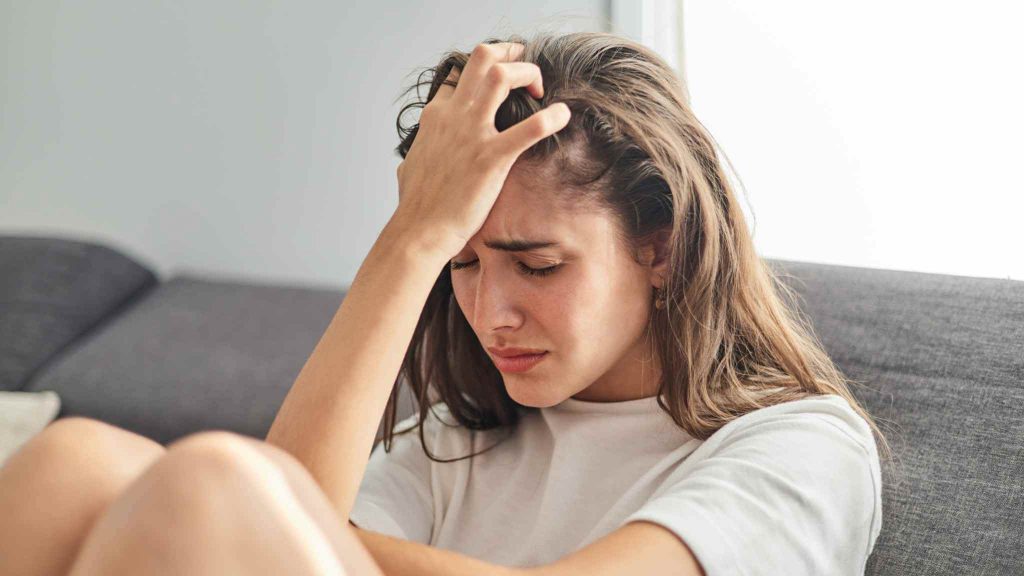
How do you know if chest pain is not heart-related?
If you are experiencing chest pain, it is important to rule out any potential heart-related causes before attributing the pain to anxiety or another non-physical cause. If you have any reason to believe that your chest pain may be heart-related, seek medical attention immediately. However, there are some key differences between heart-related and non-heart-related chest pain that can help you determine which category your pain falls into:
Heart-related chest pain is typically described as a crushing or tight sensation that radiates from the centre of the chest outward. It may also be accompanied by shortness of breath, sweating, nausea, and lightheadedness.
Non-heart-related chest pain, on the other hand, is usually more vague and diffuse. It is often described as a dull ache or pressure that does not radiate outward from a specific point.
Additionally, anxiety-related chest pain is not usually accompanied by the other symptoms typically seen with a heart attack (e.g., shortness of breath, sweating, nausea, lightheadedness).
If you are unsure whether your chest pain is heart-related or not, err on the side of caution and seek medical attention. Only a medical professional can properly assess your individual situation and give you an accurate diagnosis.
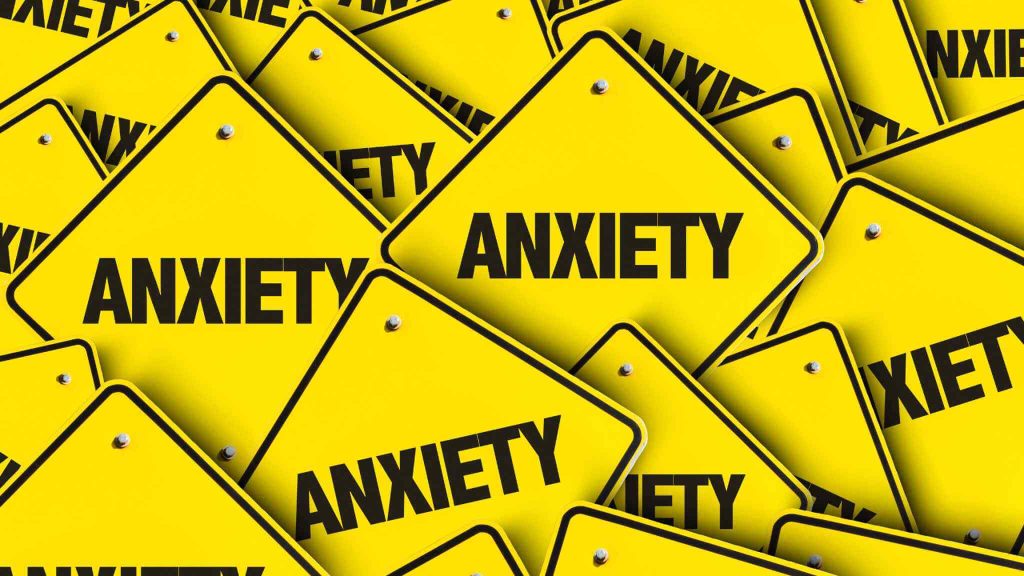
When should I go to Emergency for chest pain?
Chest pain can be a symptom of a heart attack, and it is important to rule out this possibility. If you are experiencing anxiety and chest pain, but you are not sure whether or not you should go to the Emergency department, here are some guidelines:
- If the chest pain is severe and/or accompanied by shortness of breath, lightheadedness, or nausea, you should call an ambulance or go to the Emergency department.
- If the chest pain persists for more than a few minutes or gets worse over time, you should call an ambulance or go to the Emergency department.
- If you have angina and the chest pain is relieved by rest or nitroglycerin (a medication used to treat heart conditions), it is probably not a heart attack. However, if the pain continues despite taking nitroglycerin or if your symptoms worsen, you should still go to the emergency departmnt.
- If you are unsure whether or not your symptoms warrant calling an ambulance or a trip to the emergency department, it is always better to err on the side of caution and seek medical attention.

Does chest pain always mean heart problems?
If you’re experiencing chest pain, it’s important to pay attention to other symptoms you may be experiencing and to consult with a medical professional. While chest pain is often associated with heart problems, this is not always the case. Chest pain can also be caused by indigestion, or muscle pain or injury.
What do hospitals do for chest pain?
When you arrive at the hospital, the first thing the medical staff will do is check your vital signs. This includes taking your blood pressure, heart rate, and oxygen level. They will also ask you questions about your symptoms and medical history.
They will likely also do an ECG (echocardiogram) to check the heart’s health and rhythm.
Once they have determined that you are not experiencing a heart attack or other life-threatening condition, they will likely give you medication to help relieve your chest pain and anxiety. They may also recommend some lifestyle changes, such as quitting smoking or losing weight and accessing mental health services.
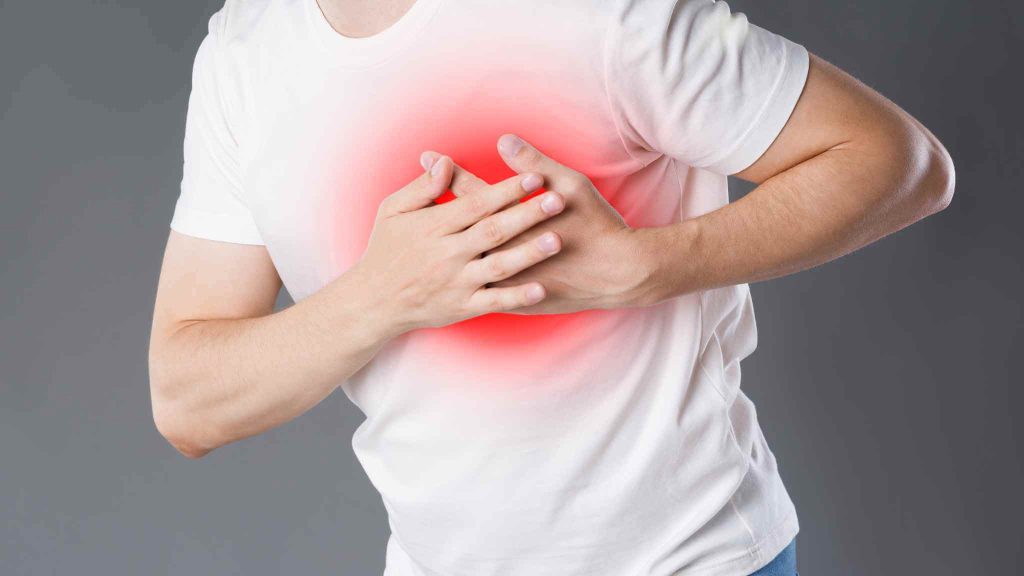
Can paracetamol relieve chest pain?
When someone experiences anxiety, it can feel like their chest is tight and they can’t breathe. This can cause a lot of pain.
Paracetamol is a pain reliever that can help to relieve the chest pain associated with anxiety. It is important to note that paracetamol will not cure the anxiety itself, but it can help to make the symptoms more bearable. If you are experiencing chest pain due to anxiety, speak to your doctor about whether paracetamol is right for you.
When to see a doctor
If you experience anxiety and chest pain, you must see a doctor as soon as possible. Chest pain can be a symptom of many different conditions, some of which are serious. A doctor will be able to determine the cause of your chest pain and provide appropriate treatment.

Conclusion
In summary, anxiety and chest pain are common issues that require proper attention. If these symptoms persist or worsen, it is important to seek medical help right away. However, there are some simple steps you can take to alleviate discomfort in the short-term such as deep breathing exercises, mindfulness meditation and other relaxation techniques.
Additionally, when possible it is a good idea to remove yourself from any stressful situation and find a quiet place for self-care. Taking care of your mental health should be priority number one!
Want more? We’ve got you covered…
Our Baby First Aid Courses
Our baby first aid courses are available in person in your home and online. We run classes in your home with groups of 2, 4 or up to 10 in Sydney & Melbourne and you can book in 3 easy steps!
- Pick your class
- Follow the prompts to purchase
- We will contact you within 24 hours to lock in your date of choice
Our First Aid Certificate Courses
We run most of the popular first aid courses Australia wide. HLTAID011 Provide First Aid, HLTAID009 Provide CPR, HLTAID012 Provide First Aid in an Education & Care Setting, RAMOAP (anaphylaxis), Mental Health first aid and CPR/LVR to name a few.
Book your public spot online or contact us if you have a group of 5+ people for onsite training.
Here are some other resources you may enjoy!
FREE GUIDE: Your Virtual Baby First Aid Kit
FREE GUIDE: Introducing Common Allergy Foods & Allergic Reactions
FREE Workplace Emergency Preparedness Plan: Grab this at the bottom of every page!
Follow for baby & child first aid and allergy info and tips on Instagram & TikTok, all @thenestcpr
